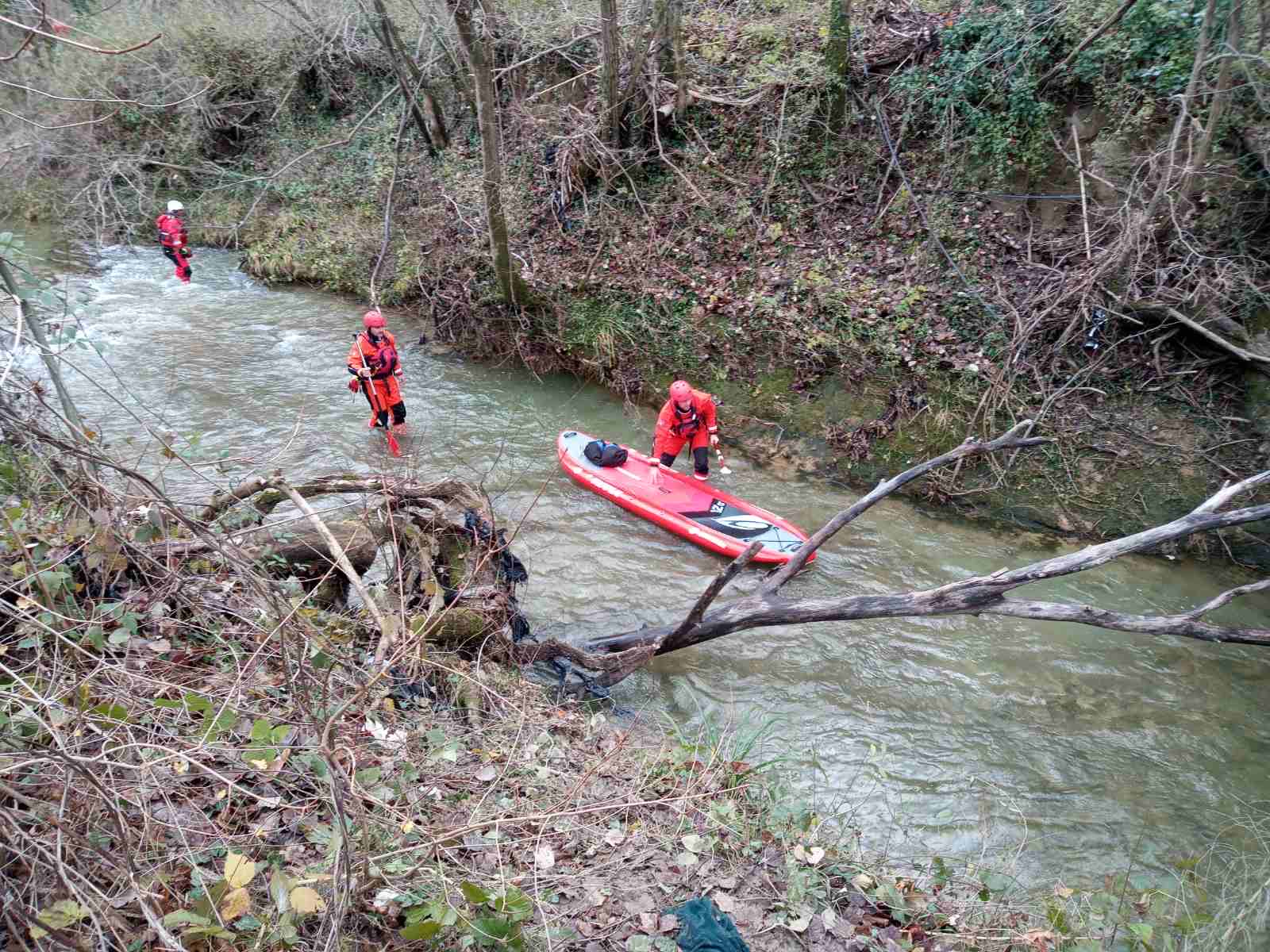
The rescue team in the Dragogna river
Yet another victim on the border between Croatia and Slovenia. This time, a girl lost her life trying to reach Slovenia by crossing the Dragonja River together with her mother and siblings. In the last 4 years, 23 migrants have died in Slovenia
A 10-year-old Kurdish girl drowned while trying to cross the Dragogna with her mother. It took the rescuers days to find her body entangled in the branches about 2 metres deep.
The small river that separates Slovenia from Croatia had already risen to the fore in the international news due to the unresolved border dispute between the two countries. During the migratory crisis of 2014, Ljubljana cordoned off it, as it did with the rest of the border, with barriers and rolls of barbed wire, to make illegal crossing of the border more difficult.
Last Thursday, a 47-year-old woman tried to ford the river to enter Slovenia with her four children. The eighteen-year-old son and another five-year-old boy managed to arrive on the Slovenian shore; the woman with the child on her shoulders remained in the middle of the water course, while the other thirteen-year-old son was stuck on the Croatian side. The waters, swollen by the rains of the previous days, dragged the child away, while the mother remained clinging to a log. Her son on the Croatian shore sounded the alarm, knocking on the door of a house and shouting the only words he knew in English: "help, help". The owner immediately went to the place and shortly afterwards a Croatian police officer arrived who jumped into the river, but could only prevent the flood from taking the woman away as well. At that point, Slovenian policemen arrived on the other side of the border. They used the dog's leash to tie the agent who dived into the water and then, with the help of a ladder, placed between the two banks, they rescued the woman.
The refugees were immediately returned to the Croatians, who first transported them to Pula, where they were hospitalised (in Slovenia the Izola hospital was only a few kilometres away), and then to the refugee centre in Zagreb, where they applied for political asylum. Now the child's body is waiting to be taken to Turkey, where she will be buried in the family's hometown.
A few days earlier, still in the Dragogna valley, a refugee from Bangladesh died of cold. The body was found by a local farmer who was walking along a country road. According to what Uros Skerl Kramberger writes in Dnevnik, 23 migrants died in various circumstances in the last 4 years in Slovenia. In the same period, about 200 people lost their lives along the Balkan route, including 2 other children. A 5-year-old boy drowned in a river between Bosnia and Croatia, while a 6-year-old girl was run over by a train in Serbia after Croatian police chased her and her family across the border. Precisely for this episode, the European Court recently condemned Croatia for violation of the right to life, inhuman treatment, and prohibition of collective refoulement.
Meanwhile, the humanitarian organisations which deal with assistance to migrants denounce the conditions in which refugees find themselves along the entire Balkan route. In winter, the situation is aggravated not only by the cold, but also by the rivers in flood. As if this were not enough, by now there is a widespread mistrust of the police and the forces that guard the borders because of the illegal pushback procedures. The operation often turns into a sort of hellish game of goose, where the migrants taken by the Slovenes are in turn returned by the Croats to the Bosnians or the Serbs. Humanitarian organisations point out the arbitrary proceedings, with migrants at the mercy of translators as well as the police.
Obtaining political asylum in Slovenia is anything but simple, the legislation is very restrictive. The country has not even joined the European Union programme which provides for the reception of 60,000 refugees, including 40,000 Afghans, by 2022. Harsh criticism has also targeted the living conditions in the foreign centre of Postojna, where migrants are held in custody, together with those who are awaiting an answer for their application for international protection.
Meanwhile, a part of Slovenia seems horrified by the death of the child. Comments on the responsibility of Europe and Slovenia appeared in the newspapers. Candles were lit in Ljubljana in memory of the little girl, under the monument dedicated to France Preseren. Secretary of State for the Interior, Bozo Predalic, however, blamed the mother who ventured into the water in an extreme situation, with small children. In short, for one of Janez Jansa's most trusted collaborators, "there are border crossings and if people passed through them, similar tragedies would not occur". On social media there was also a series of gruesome comments, and considerations on the advisability of having children take swimming lessons.
Turkish citizens cannot enter the European Union without a visa, the Kurds in Turkey have always been a discriminated population.






























 To Top
To Top